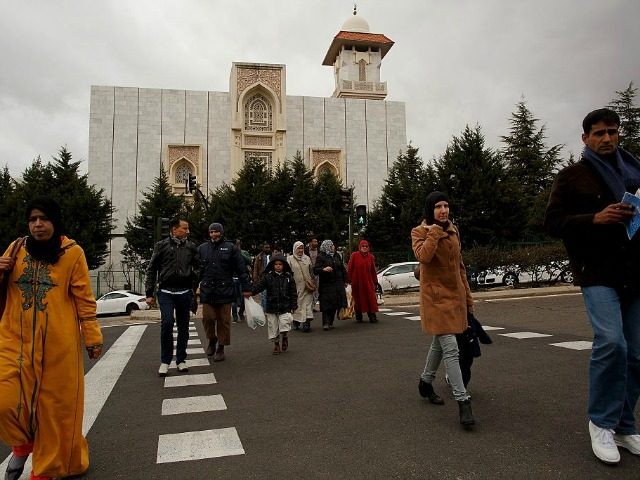The government of Turkey announced Friday that it will open its first cultural center in Latin America in Caracas, Venezuela, following a visit by that nation’s dictator, Nicolás Maduro, to Ankara for talks on economic and national security issues.
The debut of the Yunus Emre Turkish Cultural Center of Caracas will be the first such project by the Islamist government of president Recep Tayyip Erdogan in the region after the communist government of Cuba rejected his proposal for the construction of a mosque on the island. Erdogan has repeatedly expressed the belief that Muslim explorers reached America before Christopher Columbus and cited it as a reason for wanting to expand the reach of the Islamic world into heavily Christian Latin America.
Turkish Foreign Minister Mevlut Cavusoglu confirmed on Friday that Maduro’s government—represented in the meeting with Cavusoglu by his counterpart Jorge Arreaza—signed four agreements with Ankara during his visit “in the fields of economy, security, food, agriculture, animal husbandry and tourism will further strengthen our relations.” He added that Turkey will “open our first Yunus Emre Turkish Cultural Center in Latin America, in Caracas.”
Neither Turkey’s Anadolu Agency or Venezuela’s VTV have elaborated on the nature of the Turkish cultural center. Venezuelan outlets are reporting, however, that Maduro is also seeking to establish Turkish studies chairmanships in Venezuela’s public universities through a program led by Adán Chávez, brother of the late dictator Hugo Chávez.
Erdogan’s attempts to establish a cultural foothold in weakened Venezuela are especially notable in light of a failed plan to build a Turkish mosque in Cuba. In 2015, Erdogan told reporters that he was hoping to convince the communist regime of Raúl Castro to allow Turkey to build a mosque in Cuba, months after he had alleged that Muslims had set foot on the island before Christopher Columbus. “Muslim sailors reached the American continent 314 years before Columbus, in 1178,” Erdogan asserted in 2014. Erdogan later insisted that Cuba would not have to invest in the mosque project.
“I presented all the information, project work and visuals regarding the Ortakoy mosque. ‘We will do this ourselves. We don’t want a partner. If you find it appropriate we want to do this’,” Erdogan said he told the Castro regime.
The Castro regime, an avowed Marxist atheist entity, rejected the plan.
Turkish and Venezuelan state outlets have not elaborated on what sort of food and agriculture deals both parties signed. Food security is significantly lacking in Venezuela, where the majority of citizens cannot afford three meals a day and lost 19 pounds in weight involuntarily last year. Venezuela’s socialist regime has seized large portions of the nation’s agricultural land from private owners, hampering production, and the soldiers in control of the food supply often demand large bribes for access, leaving boatloads of food to rot in ports when no one can afford the bribes.
In addition to Cavusoglu’s remarks, Erdogan told reporters following his meeting with Maduro that he was seeking “to promote relations with Venezuela to on the basis of ‘win-win,'” borrowing a phrase common in Chinese diplomacy.
Maduro, meanwhile, issued a series of statements honoring the Turkish Republic, while state-run VTV published a video of the socialist dictator laying a wreath at the tomb of Mustafa Kemal Atatürk, the secularist founder of modern Turkey. “Honoring the founder of the Republic of Turkey, Mustafa Kemal Atatürk, is to recognize the historical importance of this brother nation,” Maduro reportedly said.
The party that Atatürk founded, the Republican People’s Party (CHP), is a member of the Socialist International.
In addition to the homage, VTV reports that Maduro met with Speaker of the Grand National Assembly Ismail Kahraman and several other Turkish lawmakers. Maduro’s visit is part of a larger “Bolivarian Peace Tour” that included stops in Algeria, Belarus, and Russia.

COMMENTS
Please let us know if you're having issues with commenting.